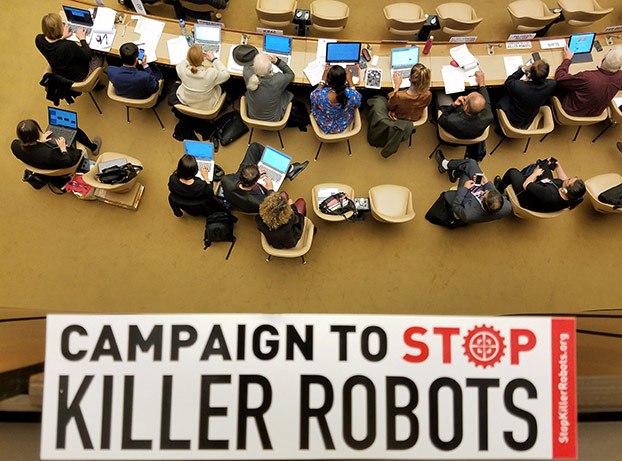The European Union has agreed not to fund projects that would develop lethal autonomous weapons. That decision is part of a larger agreement on the highly controversial European Defence Fund (EDF).
“This is an important step to prevent companies from developing such weapons”, says Daan Kayser who represents PAX in the Campaign to Stop Killer Robots. “National states should now follow suit and ban funding that would contribute to killer robots becoming a reality.” While this is good news, the EDF itself still raises many concerns, because it allocates a staggering €13 billion from 2021-2027 to foster military-industrial research and development. “The European Defence Fund may fund other controversial weapon projects without Parliamentary scrutiny”, says Kayser.
Last year, the European Parliament already adopted a resolution that called for a ban on killer robots. That resolution was adopted by an overwhelming 82% majority. The resolution stresses the imperative to prevent the development and use of these weapon systems, as well as demanding the start of international negotiations on a legally binding instrument prohibiting lethal autonomous weapon systems. The resolution sends a strong message to European states to work towards a legally binding instrument ensuring meaningful human control over the critical functions.
PAX has been advocating for an international ban on the development, production and deployment of killer robots since 2013 and it is good to see the EU taking its responsibility, even before such an international treaty is being negotiated. PAX therefore deems this decision of the EU as one of the first steps towards guaranteeing meaningful human control over the selection and attack of military targets.
From 25-29 March the United Nations will continue discussions in Geneva on lethal autonomous weapons with the aim of discussing possible options to address the humanitarian and legal concerns regarding LAWS.




